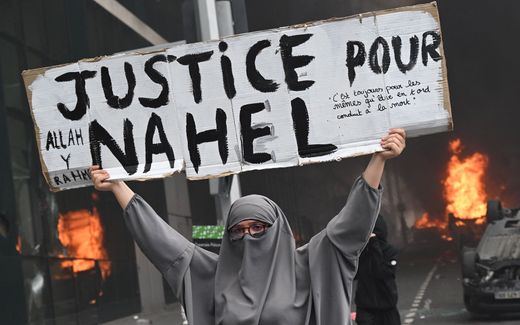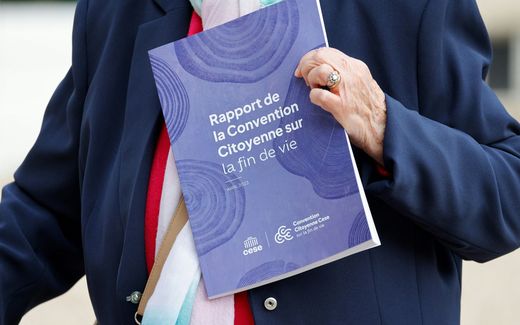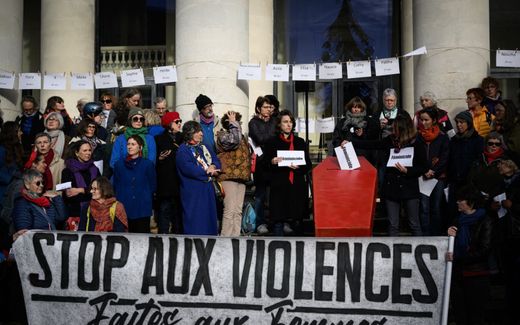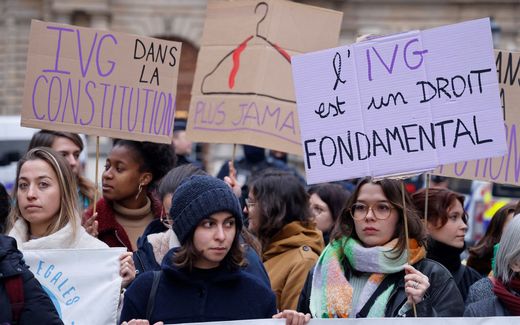Why French Protestants seem to be afraid of a right-wing surge in the elections
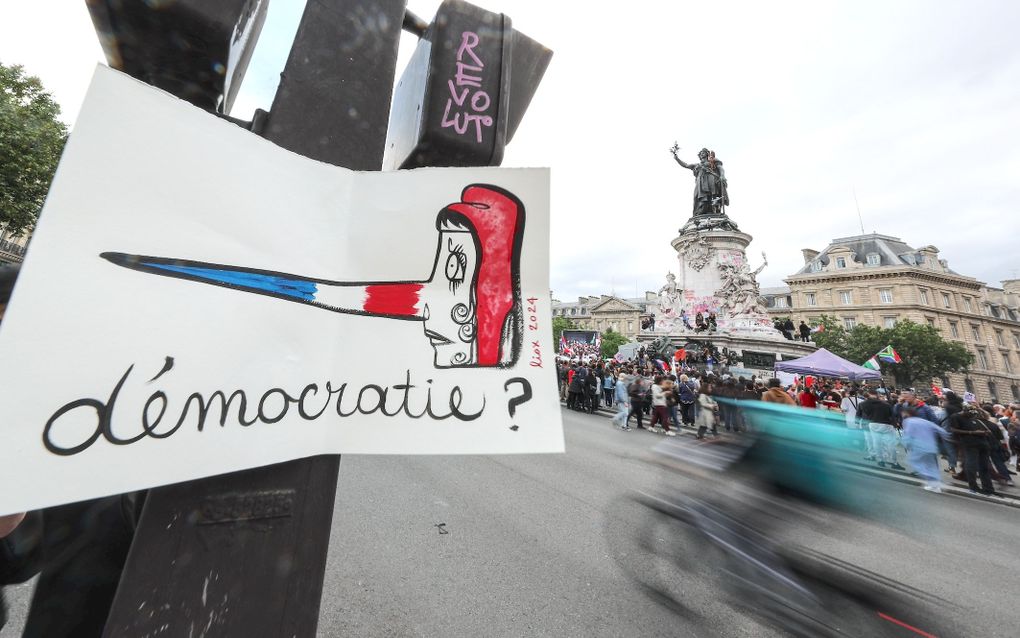
A critical signboard in Paris. Photo EPA, Mohammed Badra
Christian Life
The stakes are high in the French elections. In the second round this coming Sunday, the question is whether the far-right will keep its gain from last Sunday. The official Protestant voice clearly does not favour Mrs Le Pen, writes our columnist Marc Derœux.
The media have been in turmoil since the President announced elections on June 9th. Emmanuel Macron called on the country to renew the National Assembly (Lower House) immediately after the European elections. Since the time was short, he put the electorate under pressure to choose its 577 deputies.
This announcement was unexpected and incomprehensible at first glance. However, the population and political parties have appreciated it in various ways. Some, still in shock, consider this choice irrational and, therefore, unreasonable. Others see it as an opportunity to change the regime by punishing the policies pursued by the presidential majority.
As in many other countries, the question of the place of extremes, whether right or left, is crucial for the nation’s future. Of course, this important issue is at the heart of discussions and all kinds of speculations, raising fears of economic and social measures that could threaten the country’s cohesion and unity.
The right-wing Rassemblement National Party could obtain sufficient deputies to achieve a majority in the National Assembly. This prospect is encouraging its supporters, who now openly display their position, with some even making overtly racist remarks.
Faced with the rise of Marine Le Pen’s party, supported by the media figure of young Jordan Bardella, the camp of so-called Republican parties has been trying to counter this momentum since the results of the first round of the legislative elections. Thus, alliances between right, centre, and left political formations emerge in several constituencies.

However, agreements are difficult to find, as the programs are often barely compatible if they are compatible with each other. And in the case of electoral compromises to block the Rassemblement national, will the voters follow the voting instructions without flinching?
Most commentators and political analysts thus foresee a period of uncertainty after the vote on coming Sunday. How could such a disparate coalition govern? Will our parliamentary system be able to adapt? President Macron’s decision to dissolve the National Assembly in the current social context has opened a Pandora’s box whose outcome, whether for better or worse, is still unknown.
Usually discreet in political declarations, French Protestants have expressed deep concern through several statements issued at the beginning of the two-week legislative elections. Without calling for a vote for a specific party, the various Protestant bodies warn of the threat posed by the far-right’s rise to power.
The United Protestant Church of France (Epudf) was the first, on June 13, to call on its members, who generally vote for the left and centre-left, with an unambiguous statement. This statement, entitled “Facing the Far Right,” affirms that “The United Protestant Church of France cannot remain silent. Living one’s faith in the world engages our responsibility to work together and individually for the common good. Listening to the Gospel necessarily has political consequences that oppose the Rassemblement national’s program.”
Reminding that God loves the world, this church (strong with 250,000 members) declares: “We will therefore resist the sirens of violence and inhumanity conveyed by the far-right and the Rassemblement National. We will resist today and tomorrow, for life, for joy, through hope.”
The Protestant Federation of France (FPF), representing more than 500 communities, organisations, and movements from several denominations, followed the initiative of the Epudf on June 19, declaring that “Nothing can be built on the hatred of others.” Denouncing the prevailing demagoguery, the FPF warns that “The hour is grave. Lasting instability looms.”
It argues that “The three main political formations are pushing voters to vote out of rejection rather than adhesion, risking in the second round to trap the French in a Cornelian choice between the racism of the far-right and the anti-Semitism of the far-left.”
Without explicitly naming the Rassemblement National, the FPF, in its recent statement dated July 3, “hopes for a democratic awakening to prevent our country, its most vulnerable citizens, and our European neighbours from facing the destabilisation that a France governed by an extreme party aiming to undermine fundamental freedoms and human rights would represent.”
In its June 27 statement, the National Council of Evangelicals of France (CNEF) also calls for a democratic awakening and mobilisation at the polls so that “divisions of origin, gender, and social conditions that fracture humanity do not prevail.” Drawing inspiration from the booklet Convictions 2024, published by the CNEF, this statement continues: “Distanced from partisan postures and ready-made thinking, they [evangelical Protestants] wish to emphasise a set of values derived from their faith that they believe are conducive to building a society of peace and trust.”
Unanimously, the bodies of French Protestantism call for respectful and dignified mobilisation, determined and peaceful engagement, active prayer, and prayerful action to continue defending the freedom of conscience and safeguarding the protection of the most vulnerable in our currently too fractured society.
As the CNEF press release concludes, inspired by a sermon from Baptist pastor Martin Luther King: “Let us then refuse postures of hatred, invective, and rejection to regain together the strength to love.”
Related Articles





